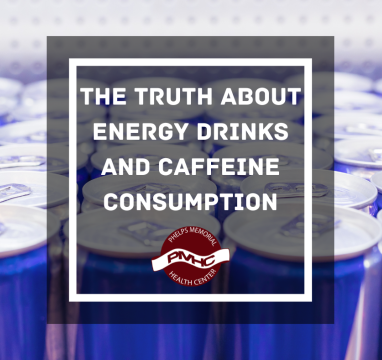In today’s fast-paced world, energy drinks are a go-to solution for a quick boost. While these beverages can provide temporary energy, they also come with potential risks. Understanding caffeine intake and the additional ingredients in energy drinks can help you make informed decisions about what you consume.
How Much Caffeine Is Too Much?
The U.S. Food and Drug Administration (FDA) has established that 400 milligrams of caffeine is the maximum daily dose for most adults. Consuming more caffeine than that, may cause negative side effects. For reference, a standard eight-ounce cup of coffee contains about 90 milligrams of caffeine, but some energy drinks can exceed 300 milligrams per serving. This means that depending on the drink, just one could put you close to or even over the recommended daily limit.
What’s in Your Energy Drink?
Many energy drinks contain other stimulants, such as guarana and taurine, which can enhance the effects of caffeine. These ingredients, combined with high caffeine content, may lead to unwanted side effects such as jitters, heart palpitations, and increased blood pressure. Many energy drinks are also loaded with added sugars, which can contribute to weight gain, cardiovascular disease, and insulin resistance when consumed in excess.
Better Energy Drink Alternatives
Phelps Memorial Registered Dietician Lacey Becker recommends choosing energy drinks with cleaner ingredients and moderate caffeine levels. If you're looking for a boost without excessive stimulants and added sugars, consider these options:
• NOOMA – A hydrating energy drink with organic caffeine and electrolytes.
• Zevia Energy Drinks – Sweetened with stevia, these provide a natural energy boost without artificial ingredients.
• FocusAid – Contains a blend of natural caffeine, vitamins, and no artificial sweeteners.
• Celsius – A popular choice with essential nutrients, but be mindful of its caffeine content.
• Bubbl’r – A lightly carbonated option with antioxidants and natural caffeine.
Who Should Avoid Energy Drinks?
Energy drinks are not safe for children or adolescents. While small amounts of caffeine may be tolerated, the combination of high caffeine levels and additional stimulants poses potential health risks. Parents should be mindful of these beverages and educate young individuals about their effects.
Final Thoughts
Caffeine can be a helpful tool when consumed in moderation, but it’s important to choose wisely. By paying attention to labels, selecting healthier alternatives, and being mindful of your overall intake, you can support your energy levels while still prioritizing your health.



